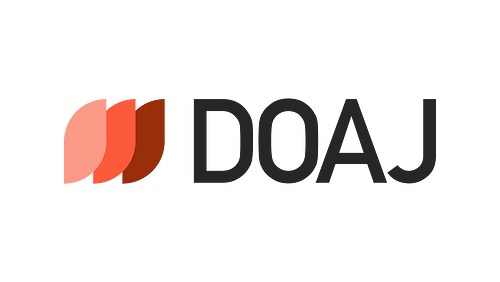
DOAJ (Directory of Open Access Journals)
Mission
DOAJ's mission is to increase the visibility, accessibility, reputation, usage and impact of quality, peer-reviewed, open access scholarly research journals globally, regardless of discipline, geography or language.
DOAJ is committed to being 100% independent and maintaining all of its primary services and metadata as open to everyone.
Key Achievements
- More than twenty years at the heart of quality, peer-reviewed open access journal publishing, indexing thousands of peer-reviewed, open access scholarly journals.
Technical Attributes
Maintenance Status
Code License
Technical Attribute Statements
Technology Readiness Level
- Actual system proven in operational environment
Code Licenses Used
- Apache License, Version 2.0
Content Licensing
Standards
Integrations
- B!SON
- Chronos Hub
- Clarivate/Proquest suite of products
- Crossref API
- Dimensions
- EBSCO discovery
- Google Scholar
- ISSN Portal
- ISSN ROAD
- ISSN Keepers
- Journal Finder Tool
- Lens
- OA.Works
- OCLC
- OpenAI
- OpenAlex
- PKP's OJS plugins
- Plan S Journal Checker Tool
- Sherpa/Romeo
- Unpaywall
Community Engagement
Community Engagement
Community Statements
User Contribution Pathways
- Contribute to code
- Contribute to documentation
- Contribute to education or training
- Contribute to user research or user testing
- Contribute to working groups or interest groups
Community Engagement Activities
- Blogs
- Community calls
- Conference participation
- Interest, working, user, or advisory groups
- Social media
- User research
- Volunteer or ambassador network
- Webinars and training
Engagement with Values Frameworks
- FOREST Framework for Values-Driven Scholarly Communication
- Helsinki Initiative on Multilingualism
- Joint Statement of Principles of the Coalition for Diversity and Inclusion in Scholarly Communication (C4DISC)
- Principles for Open Scholarly Infrastructure (POSI)
- San Francisco Declaration on Research Assessment (DORA)
SCOSS Participation
More About Community Engagement
User Contribution Pathways:
Community Engagement Activities:
Policies & Governance
Governance Summary
DOAJ is an independent organisation run and managed by the DOAJ Foundation, a non-profit community-governed foundation based in Denmark . DOAJ has a Board of Directors and an Advisory Board, the members of which carry out their duties voluntarily.
Policies
Web Accessibility Statement
Policy Statements
Board Structure
- Advisory board or steering committee
Board Members
Community Governance
- Formal
Additional Information
Organizational History
On 12th May 2003, DOAJ was launched by Lars Bjørnshauge. It was run as a service of Lund University Libraries.
DOAJ grew over the years and in 2013, it moved to become an independent service managed by IS4OA CIC of which Lars is a director.
In 2022, IS4OA created a Danish branch to ease an eventual transition of DOAJ out of post-Brexit UK.
In 2025 the administration of DOAJ moved from Infrastructure Services for Open Access (C.I.C.) to DOAJ Fonden, which is a Foundation registered in Denmark.
Organizational Structure
Business or Ownership Model
Funding
Primary Funding Source
- Contributions
Funding Needs
Developing enhanced support for diamond journals, including:
- preservation,
- enhanced visibility
- guidance and help for publishers and editors
Global support for journal publishers and editors through:
- an extended Ambassador program
- the appointment of regional co-ordinators
- new solutions for multilingual metadata and website
Investment in our technical infrastructure to:
- use machine learning to automate processes and enable our team to focus on high-value activities.
- develop our capabilities to ingest articles from journals instead of relying on journal staff to send content to us.
- strengthen DOAJ’s coverage of trusted journals significantly by supporting integrations and collaboration with global indexes, e.g. Redalyc, Scielo, Latindex, to enhance the visibility of trusted OA globally through library discovery systems and other tools.